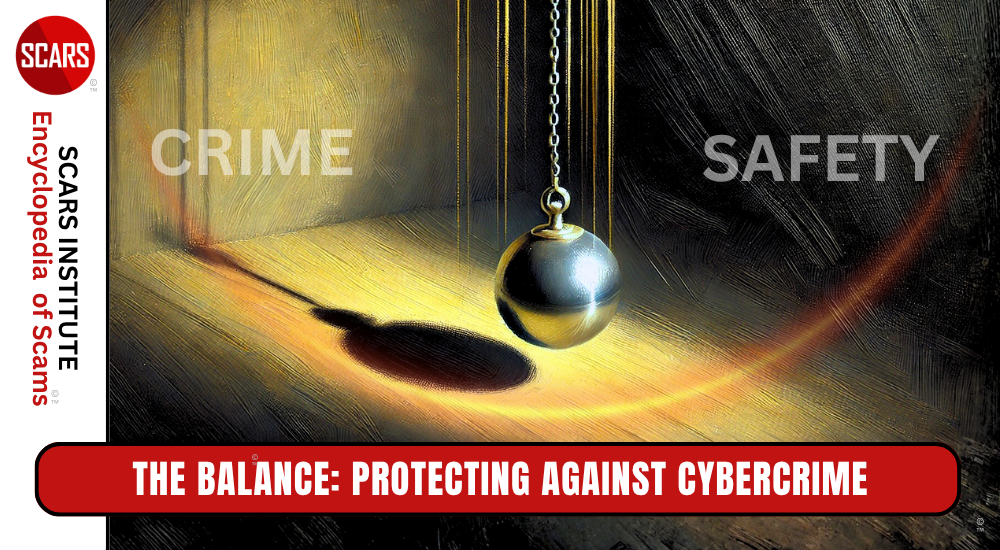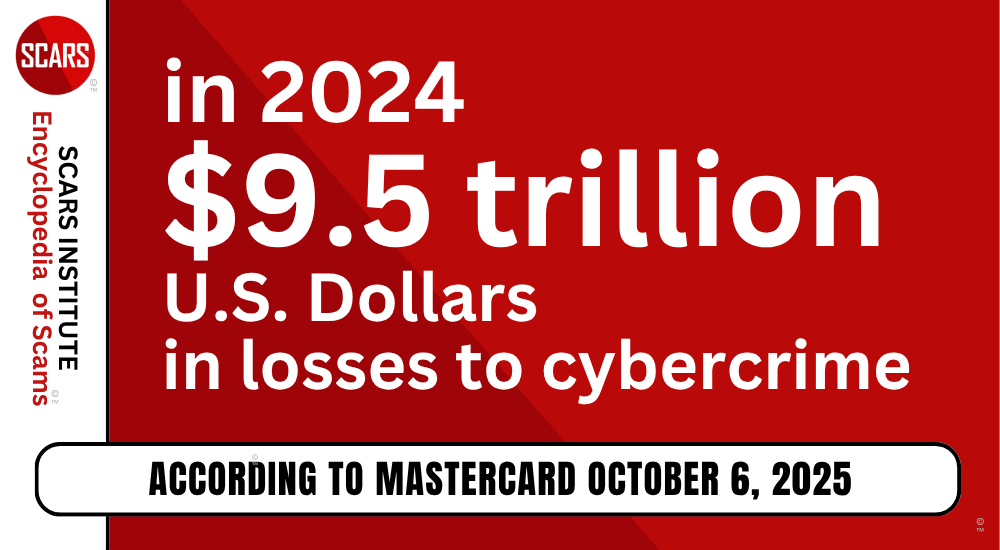
SCARS Institute’s Encyclopedia of Scams™ Published Continuously for 25 Years

The Horrible Story Of A Victim Scammed And Held Captive In Africa And Then Dies
A Scam Victim’s Story
For almost a decade SCARS has warned victims about going to visit online relationships in Africa. Meeting that person that you have never met in their country can be life-threatening.
Dozens of foreign travelers go missing each year in West Africa – even in as modern a country as Nigeria, scam victims are taken captive and many never return.
This Is One Such Story!
The Tragedy: Woman Who Fell for Romance Scam Loses Home, Taken Captive, Dies—According To Her Family
A 70-year-old woman from Coeur d’Alene in Idaho who had fallen for a romance scam was kidnapped by the men who had “catfished” her and has now died shortly after being able to return home, according to her family.
Diane Webb had been introduced to dating apps three years ago by her granddaughter, the family told Spokane, Washington, TV station KHQ-TV, thinking the woman might find a spouse after being single for 40 years.
The idea initially seemed to prove successful, as Webb fell in love with a man named Michael, whom she met on an unidentified dating app.
Michael—who the family now knows wasn’t a real person, but a fake profile created to trick women looking for love and companionship—was said to be based in Nigeria, so for three years, the two did not meet in person.
But in the three years of talking, Webb’s family told KHQ-TV that the man would often ask the woman for money, for a variety of reasons that are often brought up by romance scammers —which usually range from paying for health fees resulting from a sudden incident to asking for support to afford a plane ticket.
According to Webb’s daughter Monica Grimm, Michael had often told Webb he would come to visit in Idaho, but “on the day he was supposed to show up he would tell her ‘I’m at the airport, but I don’t have money to get to you. Could you just give me a little?’ He was in Africa the whole time,” the woman told KHQ-TV.
Eventually, Michael convinced Webb to distance herself from her family, telling her they didn’t value her as much as he did. According to the woman’s family, Webb turned her back on her relatives and even sold her home under the pressing requests of Michael.
Then in March this year, according to the family, Webb traveled to Nigeria to meet Michael, aiming to stay for three months. But instead, the woman was held captive by the same men who had catfished her, was physically and mentally abused, and fed only potatoes and beer, until July 2022.
On July 9, Spokane Airport security called Webb’s family and told them that the woman was back home after one of her captors, whom she had befriended, bought her a ticket back to the U.S.
“He felt bad for my mom being 70 and as sick [as] she was. He told her I’m getting you a ticket and sending you back home,” Webb’s daughter Melinda Thomas told KHQ-TV.
But Webb’s return home was no happy ending to a frightful story, as the woman has recently passed away due to malnutrition.
Newsweek has tried to contact the FBI for comment.
Though Webb’s story is an extreme example of the consequences of romance scams on the lives of those who fall prey to them, thousands of people report cases of catfishing and dating scams every year.
Source: Newsweek

-/ 30 /-
What do you think about this?
Please share your thoughts in a comment below!
Table of Contents
LEAVE A COMMENT?
Recent Comments
On Other Articles
- velma faile on Finally Tax Relief for American Scam Victims is on the Horizon – 2026: “I just did my taxes for 2025 my tax account said so far for romances scam we cd not take…” Feb 25, 19:50
- on Reporting Scams & Interacting With The Police – A Scam Victim’s Checklist [VIDEO]: “Yes, this is a scam. For your own sanity, just block them completely.” Feb 25, 15:37
- on Danielle Delaunay/Danielle Genevieve – Stolen Identity/Stolen Photos – Impersonation Victim UPDATED 2024: “She goes by the name of Sanrda John now” Feb 25, 10:26
- on Reporting Scams & Interacting With The Police – A Scam Victim’s Checklist [VIDEO]: “So far I have not been scam out of any money because I was aware not to give the money…” Feb 25, 07:46
- on Love Bombing And How Romance Scam Victims Are Forced To Feel: “I was love bombed to the point that I would do just about anything for the scammer(s). I was told…” Feb 11, 14:24
- on Dani Daniels (Kira Lee Orsag): Another Scammer’s Favorite: “You provide a valuable service! I wish more people knew about it!” Feb 10, 15:05
- on Danielle Delaunay/Danielle Genevieve – Stolen Identity/Stolen Photos – Impersonation Victim UPDATED 2024: “We highly recommend that you simply turn away form the scam and scammers, and focus on the development of a…” Feb 4, 19:47
- on The Art Of Deception: The Fundamental Principals Of Successful Deceptions – 2024: “I experienced many of the deceptive tactics that romance scammers use. I was told various stories of hardship and why…” Feb 4, 15:27
- on Danielle Delaunay/Danielle Genevieve – Stolen Identity/Stolen Photos – Impersonation Victim UPDATED 2024: “Yes, I’m in that exact situation also. “Danielle” has seriously scammed me for 3 years now. “She” (he) doesn’t know…” Feb 4, 14:58
- on An Essay on Justice and Money Recovery – 2026: “you are so right I accidentally clicked on online justice I signed an agreement for 12k upfront but cd only…” Feb 3, 08:16
ARTICLE META
Important Information for New Scam Victims
- Please visit www.ScamVictimsSupport.org – a SCARS Website for New Scam Victims & Sextortion Victims
- Enroll in FREE SCARS Scam Survivor’s School now at www.SCARSeducation.org
- Please visit www.ScamPsychology.org – to more fully understand the psychological concepts involved in scams and scam victim recovery
If you are looking for local trauma counselors please visit counseling.AgainstScams.org or join SCARS for our counseling/therapy benefit: membership.AgainstScams.org
If you need to speak with someone now, you can dial 988 or find phone numbers for crisis hotlines all around the world here: www.opencounseling.com/suicide-hotlines
A Note About Labeling!
We often use the term ‘scam victim’ in our articles, but this is a convenience to help those searching for information in search engines like Google. It is just a convenience and has no deeper meaning. If you have come through such an experience, YOU are a Survivor! It was not your fault. You are not alone! Axios!
A Question of Trust
At the SCARS Institute, we invite you to do your own research on the topics we speak about and publish, Our team investigates the subject being discussed, especially when it comes to understanding the scam victims-survivors experience. You can do Google searches but in many cases, you will have to wade through scientific papers and studies. However, remember that biases and perspectives matter and influence the outcome. Regardless, we encourage you to explore these topics as thoroughly as you can for your own awareness.
Statement About Victim Blaming
SCARS Institute articles examine different aspects of the scam victim experience, as well as those who may have been secondary victims. This work focuses on understanding victimization through the science of victimology, including common psychological and behavioral responses. The purpose is to help victims and survivors understand why these crimes occurred, reduce shame and self-blame, strengthen recovery programs and victim opportunities, and lower the risk of future victimization.
At times, these discussions may sound uncomfortable, overwhelming, or may be mistaken for blame. They are not. Scam victims are never blamed. Our goal is to explain the mechanisms of deception and the human responses that scammers exploit, and the processes that occur after the scam ends, so victims can better understand what happened to them and why it felt convincing at the time, and what the path looks like going forward.
Articles that address the psychology, neurology, physiology, and other characteristics of scams and the victim experience recognize that all people share cognitive and emotional traits that can be manipulated under the right conditions. These characteristics are not flaws. They are normal human functions that criminals deliberately exploit. Victims typically have little awareness of these mechanisms while a scam is unfolding and a very limited ability to control them. Awareness often comes only after the harm has occurred.
By explaining these processes, these articles help victims make sense of their experiences, understand common post-scam reactions, and identify ways to protect themselves moving forward. This knowledge supports recovery by replacing confusion and self-blame with clarity, context, and self-compassion.
Additional educational material on these topics is available at ScamPsychology.org – ScamsNOW.com and other SCARS Institute websites.
Psychology Disclaimer:
All articles about psychology and the human brain on this website are for information & education only
The information provided in this article is intended for educational and self-help purposes only and should not be construed as a substitute for professional therapy or counseling.
While any self-help techniques outlined herein may be beneficial for scam victims seeking to recover from their experience and move towards recovery, it is important to consult with a qualified mental health professional before initiating any course of action. Each individual’s experience and needs are unique, and what works for one person may not be suitable for another.
Additionally, any approach may not be appropriate for individuals with certain pre-existing mental health conditions or trauma histories. It is advisable to seek guidance from a licensed therapist or counselor who can provide personalized support, guidance, and treatment tailored to your specific needs.
If you are experiencing significant distress or emotional difficulties related to a scam or other traumatic event, please consult your doctor or mental health provider for appropriate care and support.
Also read our SCARS Institute Statement about Professional Care for Scam Victims – click here to go to our ScamsNOW.com website.









![United States Military ID Cards - How To Spot Fakes - [UPDATED 2025] fake military id cards United States Military ID Cards - How To Spot Fakes - [UPDATED 2025] - on the SCARS Institute RomanceScamsNOW.com - the Encyclopedia of Scams™](https://romancescamsnow.com/wp-content/uploads/2022/03/fake-military-id-cards.png)






Thank you for your comment. You may receive an email to follow up. We never share your data with marketers.